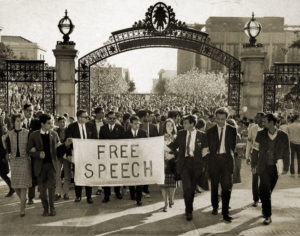Why don’t experts speculate?
June 29th, 2016
Experts in any field seem very unwilling to speculate, or even endorse speculation, about long-term developments in their field.
Whether it’s physics, or AI, or medicine, or politics, experts don’t want to talk about their ideas on long-term developments. In those rare cases where they do, they often use pseudonyms (many professional scientists have published science fiction, but only rarely under their real name).
I’m not sure why this is, but I’ve been collecting possible reasons:
1 – They have a lot to lose as experts if the speculations turn out wrong, and by their nature speculations are…speculative.
2 – They are very focused on immediate problems and progress. This is what they’re paid to to do, and where they get their professional prestige.
3 – They are more keenly aware than non-experts of the many difficulties there will be in the actual implementation of speculative ideas. While they may know intellectually that these difficulties are not insurmountable in principle, as an expert they’re overwhelmed by the amount of work yet to be done, and tend to assume it’ll never happen.
4 – Even if they think the speculations are reasonable and will turn out correct in the long run, because of #3 they fear losing professional respect within their field – other experts may be discouraged by the amount of work yet to be done, and so consider as “crazy” anyone who takes a longer-term view.
Supporting these ideas is the observation that those few experts who are willing to engage in speculation tend to be from the very top (Nobel laureates, etc.) or very bottom of their field.
Those, in other words, who are either so respected they don’t fear a loss of status, or who have no status to lose in the first place.
In a recent post on his blog Overcoming Bias, Robin Hanson notes:
we often have academics who visit for lunch and take the common academic stance of reluctance to state opinions which they can’t back up with academic evidence
Which doesn’t directly explain why they don’t want to, while providing an excuse. Hanson suggests:
One does not express serious opinions on topics not yet authorized by the proper prestigious people.
Or, as Stephen Diamond has suggested,
Long-term speculation is hard to falsify until its propounders are safely dead. I suspect this is the reason for reluctance: it may seem a cheap way to get acclaim without empirical responsibility or consequences.
I think that’s a charitable interpretation – I suspect Hanson is closer to the truth.
Free speech and the left
May 29th, 2016
What is going on with the left and free speech?
Decades ago self-described liberals were consistently in the forefront of defending the right to free speech and the first amendment.
Lenny Bruce was the poster boy/martyr for this cause. Liberals defended pornography and communists. They consistently said “the answer to speech you don’t like is more speech” – not controls on speech.
The ACLU became famous for defending unpopular speech, even to the extent of defending the right of neo-Nazis to march though the largely Jewish Chicago suburb of Skokie.
From George Orwell’s 1984 to the Berkeley Free Speech Movement to denunciations of Joe McCarthy, much of the left seemed to define itself as defending freedom of expression.
But in recent years it seems the situation has turned 180 degrees. The #1 cause célèbre among all my left-of-center friends is reversing Citizens United. Campus protests demand censorship and “safe spaces”, and aim to drum professors advocating politically incorrect views out of the academy.
And then we have:
Arrest Climate-Change Deniers – Gawker
New Inquisition: Punish climate-change ‘deniers’ – WND.com
Al Gore at SXSW: We Need to ‘Punish Climate-Change Deniers’ and ..
Climate “Deniers” Must Be Jailed or Killed | – Acting Man
This all seems a very long way from the impassioned defense of free speech the left (in the US) used to stand for.
What happened? Why?
I asked an insightful slightly left-of-center friend, who said,
“Liberals will care about free speech if and as it fights harm and oppression and advances equality. There are a handful of people who care about free speech as an end in itself, but not many.”
I’m not sure if that’s correct. But if it is, what does that say about the contemporary left?
If the left of the 1940s, 50s, and 60s thought that free speech would advance its goals, helping to undermine the status quo, does it now oppose free speech because it sees itself in a position of power, able to dictate what are and aren’t acceptable ideas?
When and how did that change? Did the fall of the Soviet empire strengthen the left in the west, instead of discrediting it?
I’m confused. But as someone who really does care about free speech, it’s terribly disappointing.
A millionaire was worth a ton of gold
April 9th, 2016
As far as I can tell, the popular image of a “millionaire” in the US comes from the 19th century.
Whether you figure by the gold price or by the CPI deflator, one million dollars would buy between 1 and 2 tons of gold during most of that century.
Here in 2016, a ton of gold is worth about $35,000,000.
That’s inflation for you (which I suppose is why many people today use “millionaire” to mean someone who earns $1M/year, instead of someone with a net worth of $1M).
But gold doesn’t inflate. A ton of gold is a millionaire. A nice visualizable amount.
It’s all Darwin’s fault
May 28th, 2015
For a shock, read Francis Wayland’s The Elements of Moral Science (1835; try also here), “one of the most widely used and influential American textbooks of the nineteenth century“.
As Wayland – prior to Darwin’s theory of evolution – explained, conventional Christian morals were based on the idea that Man was made by God, and so had special moral responsibilities.
Darwin knocked that bucket over, and in the process broke the long-accepted rationales for all kinds of legal, moral, and ethical rules. The reverberations from that were still being felt at least into the 1970s, and included socialism, progressivism, communism, the sexual revolution (of the 1920s, not the 1960s one), fascism, bad art, ugly buildings, environmentalism, hippies, flower power, and more. Some of it was good, more of it was bad. Things didn’t really start to settle down until the 1980s in the US, the 1990s in Europe, and still aren’t settled in the Islamic world.
And there are plenty of people – all over the world – who still haven’t made peace with it.
In Asia there wasn’t as much commotion about Darwin because Asian societies tended to take their social rules from non-theistic sources (as the West does now, mostly); Darwin’s revelations didn’t invalidate them.
It is telling, I think, that East and West had more-or-less similar rules (and still do, post-Darwin), despite supposedly getting them from independent sources.
I think that shows the rules really came from social evolution, a la Friedrich Hayek (certain rules tend to make societies dominant). Ironic, no?
Disaster profiteering & emotions
March 29th, 2015
Why does almost everyone (even me) feel disgust at disaster profiteering?
On the face of it, that’s the market at work – big needs bring high prices, which bring lots of supply, right? It seems (looking at it economically, not emotionally) the quickest way to get help to those in need. But it disgusts me, too.
My hypothesis is that people instinctively fear that profiteers will engineer a crisis if they can make a profit from it. To prevent that, there’s social opprobrium for profiting from a crisis.
Just a thought.
How to deal with tailgaters
March 29th, 2015
I learned the hard way not to speed up.
Once at night I had a tailgater on a two lane road (no easy way to pass), and, being a nice guy, I sped up to accommodate him.
A mile later, the tailgater turned on his blue lights, pulled me over, and gave me a ticket for speeding.
So, now:
1) I get as far to the right as possible (left in countries that drive on the left).
I hope that’ll let them pass. Sometimes it doesn’t.
2) So then I slow down. Gradually (no “brake checking”).
And keep on slowing down. Until they pass me.
Occasionally I’ll have to slow down a lot before they’ll pass me – it’s amazing. Sometimes I end up going 15 miles/hour on a limited access highway! (interstate/freeway/autobahn/etc.)
[I wonder if these people just think it’s normal to drive 16 inches behind the car in front of them – once they finally pass, they look…confused.]
One time, on a small road, I had to come to a complete stop before the guy would pass me!
Guess what – he turned out to be a cop. Once I stopped he, very slowly, went around me and drove away.
A brief overview of history
March 29th, 2015
In the traditional inverse-log focus:
Big bang. Galaxies. Earth. Life. Bacteria. Plants. Oxygen in the atmosphere. Animals. Smart animals. Then fire and cooking. A lot of fighting.
Then agriculture. Soon after, writing was invented around 10,000 years ago. Recorded history begins.
Then wheels. Empires and a lot more fighting. Classical civilization (Greece and Rome) rose and fell. Big organized religions.
Printing press. Perspective drawing. Global travel by sailing ships. Epidemics. First global maps. Securities markets. Corporations. The beginnings of science around 1650, mostly in northern Europe.
18th century: Notions of human rights proposed. More empires. Symphonies. European colonization of Africa and Asia. Newtonian physics. Bach. Beginnings of chemistry.
The great 19th century: Industrial revolution – steam engines, precision machines, factories, mass production, electronic communication. Photography. Railways. The first time substantial numbers of people lived at above bare subsistence level. Periodic table. More empires and wars. European domination of the world. Slavery mostly abolished. Darwin’s discovery of evolution. Classical physics.
20th century: Relativity. Quantum physics. Aviation, cinema, automobiles, radio. Ideological extremism. Nuclear power, electronics, computers, primitive space travel. Rock and roll. Molecular biology. More wars, less empires. The early Internet.
21st century: A majority of Earth’s population lives above bare subsistence, mostly thanks to reforms by the Chinese Communist Party (not communist in anything but name). Advances in cosmology and computer science. Wars, but less so.
And here we are.
Added January 2024: …Signs of a renaissance in space travel. Early AI.
Net neutrality and the FCC
March 29th, 2015
This is a letter to the editor in response to “How to Break the Internet” in the May 2015 issue of Reason magazine.
Dear Editor,
There are many legitimate criticisms that may be made of the FCC’s approach to net neutrality. Unfortunately, Geoff Manne and R. Ben Sperry do a poor job of making any of them in their May article.
While I agree that Title II regulation is the wrong approach, net neutrality is an attempt to solve a real problem that requires solution.
What Manne and Sperry miss are two points that have gradually become clear to those of us who have worked on these technologies over the last 30 years:
1 – Internet bandwidth is not, in practical terms, a scarce resource. In theory of course it is scarce, just as the amount of air we can breathe is limited by what Earth’s atmosphere holds. But in practical terms, we are not going to run out.
This took a long, long time for technologists to understand – a huge amount of network engineering development and standardization has focused on bandwidth prioritization and allocation mechanisms.
Almost none of which are used in practice. Because it turns out that it is almost always cheaper to simply add more network capacity (“overprovision”), than it is to implement mechanisms to allocate bandwidth as a “scarce resource”.
2 – Contra Manne and Sperry, at least in the US, Internet service provision is not a competitive industry, but a quasi-monopolistic one. This (as Reason should know) is mainly due to regulations at the state and local level. Having 2 or 3 regulated firms offering service in a given area is not the same as free entry into a market.
If truly free competition in the ISP business were allowed, there would be no need for “net neutrality”; competitive forces would solve the problem.
But we don’t have that. I’d much rather see Federal legislation that truly deregulates the ISP business (taking monopoly power away from states and localities). Until that happens, ISPs really do have quasi-monopolistic power.
ISP attempts to tax content providers based on “scarce resource” arguments are spurious excuses for a money and power grab that is in fact simply rent seeking.
As long as that situation is allowed to persist, we do need some limits on how ISPs may abuse that power.
Thank you, Lee Kuan Yew
March 23rd, 2015

Lee Kuan Yew passed away yesterday.
Much to my regret, I never met him. I did not agree with him about many things.
But he was the greatest single benefactor of mankind in history.
As a direct result of the actions of Harry Lee and his “socialist” People’s Action Party, billions of people were lifted out of abject poverty, through reforms first in Singapore, then copied in China and in much of Asia.
Billions of people.
Today Reuters quotes Lee as saying in 1986 “We have to lock up people, without trial, whether they are communists, whether they are language chauvinists, whether they are religious extremists. If you don’t do that, the country would be in ruins”.
He outlawed long hair on men in the 1970s. Banned the sale of chewing gum. And, of course, many drugs.
Those things don’t fit with my politics. But look at the result. Singapore, once almost a synonym for filth and poverty, today is arguably both the freest and wealthiest country in the world. And – billions of people.
Deng Xiaoping, architect of China’s rise through market economics, based directly on emulation of Lee Kuan Yew’s policies in Singapore, famously said “it doesn’t matter whether a cat is black or white, if it catches mice it is a good cat”.
Lee’s cats caught mice.
And so, despite everything, I mourn Lee Kuan Yew.
And, about our political disagreements? Maybe I’m wrong.

Modern times
March 13th, 2015
God said, “I am the Lord thy God, King of the Universe. You shall do as I command, or suffer the consequences.”
Man was unhappy, but resigned.
Darwin said “There is no God.”
Man said “I am free! I may do as I please. I want utopia without effort. I want socialism, and fascism, and communism. There shall be no need for greed or hunger. All children shall be above average. I so command!”
God said nothing, since He did not exist.
Reality said “here are the consequences”.
Man was unhappy. But then, he had always been so.

